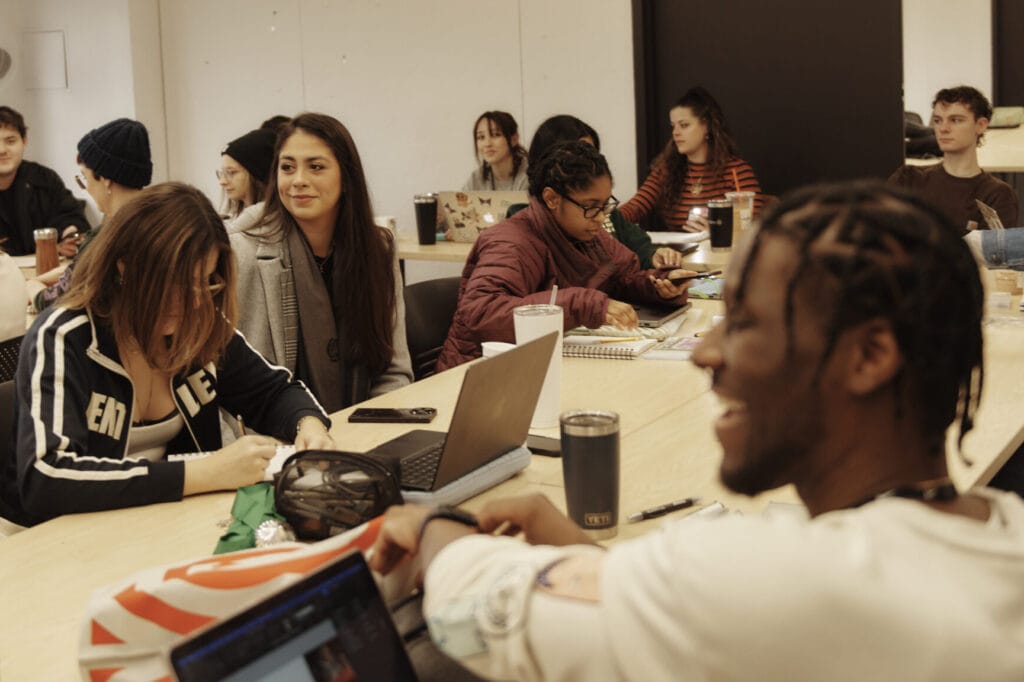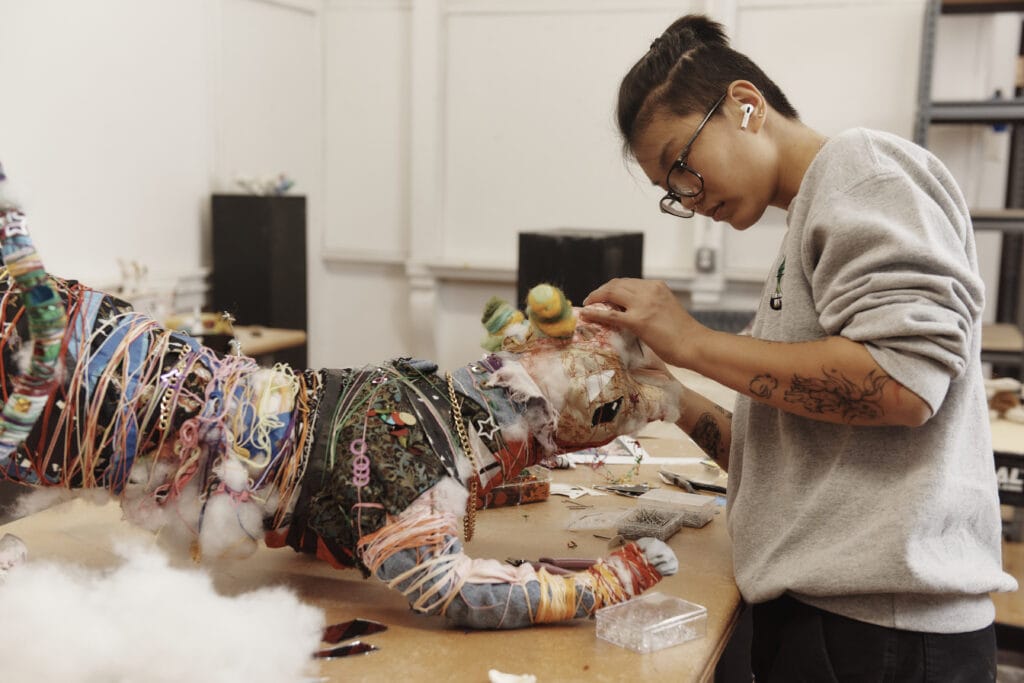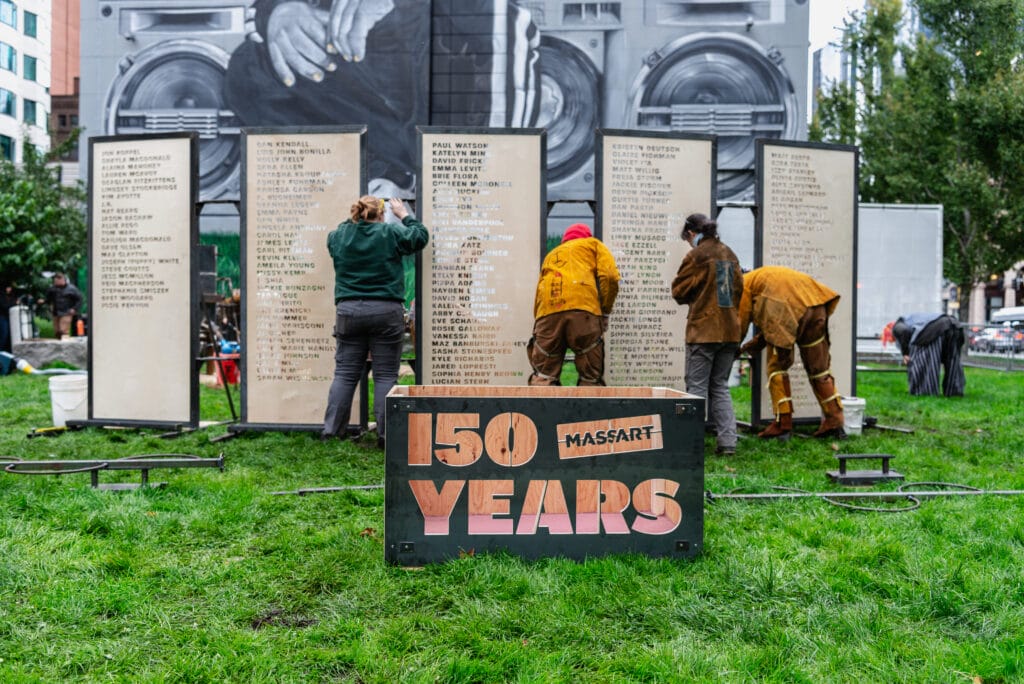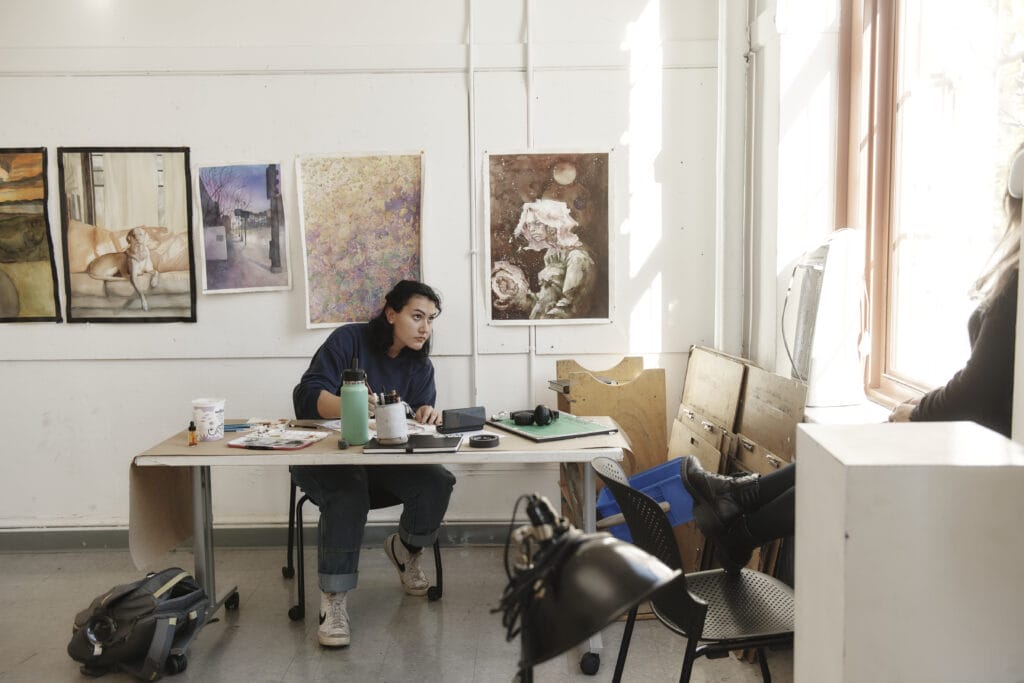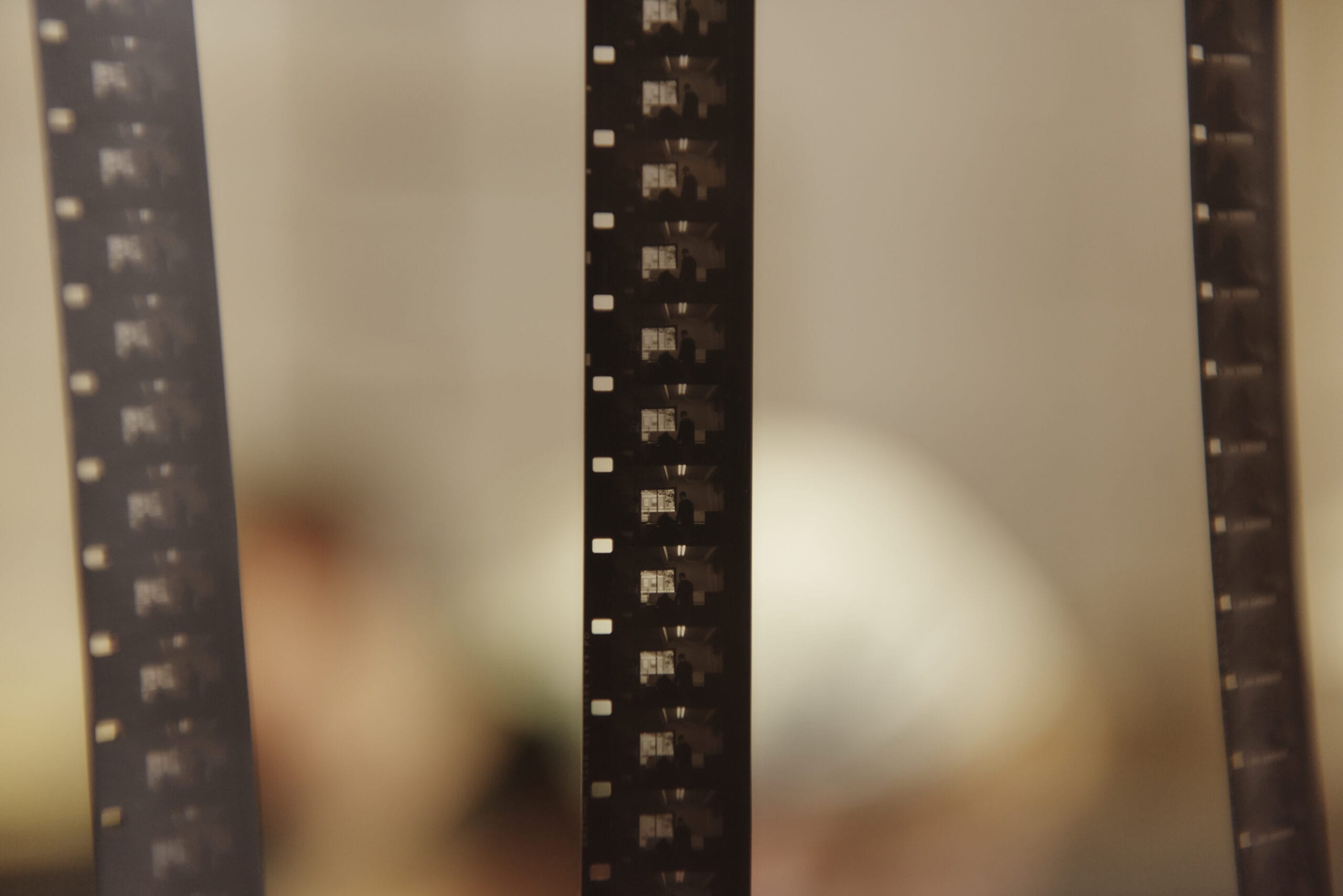Film/Video students gain the conceptual tools and technical training to become successful moving image artists and media professionals.
MassArt Film/Video BFA students are encouraged to experiment widely and are introduced to all facets of digital and analog production, as well as experimental, narrative, and nonfiction forms. Throughout their courses, students focus on producing original work, both individually and in collaboration with their peers.
Classes offer students the opportunity to explore emerging digital platforms, including live video and performance, video installation, multi-screen projection and 360º camera. Film/Video elective courses include cinematography and lighting, screenwriting, sound design, hand-made film, performance for camera, video installation, editing, and post-production finishing.
Through viewings and discussions, students study the history and contemporary culture of the moving image. In-class critiques give students the vocabulary to understand and discuss their work, and help to contextualize it within the dialogue of contemporary art. Small class sizes taught by nationally and internationally recognized faculty provide diverse perspectives and rich learning environments where students can grow as creative thinkers.
Alumni Success
After graduating, MassArt Film/Video alumni continue their studies in top-ranked MFA programs; become award-winning filmmakers and video artists; work in the film industry as cinematographers, gaffers, editors, and production assistants; and direct and program film festivals.
BFA Learning Outcomes
Students who complete the Film BFA Program are expected to be able to demonstrate the following learning outcomes, which are necessary and part of successful entry into professional design practice.
- To articulate and realize a personal vision with the moving image
- To develop and engage in a personal thesis project.
- To be passionate about their work and have the technical and conceptual skills to reach that vision.
- To gain confidence in their own skills as media makers.
- To be creative risk takers and problem solvers, and to learn from failure.
- To understand the history of the moving image and its various styles and genres and incorporate a critical analysis of the moving image into their work.
- To know how to do research, how to source and build resources for their work.
- To develop openness to listen to the critique of peers and faculty and thoughtfully incorporate relevant feedback to their work.
- To develop awareness of current film, video, installation practices in the global culture.
- To develop a respect and appreciation for diversity across a broad spectrum: racial, social, political, economic, gender, and in a socially sensitive art practice.
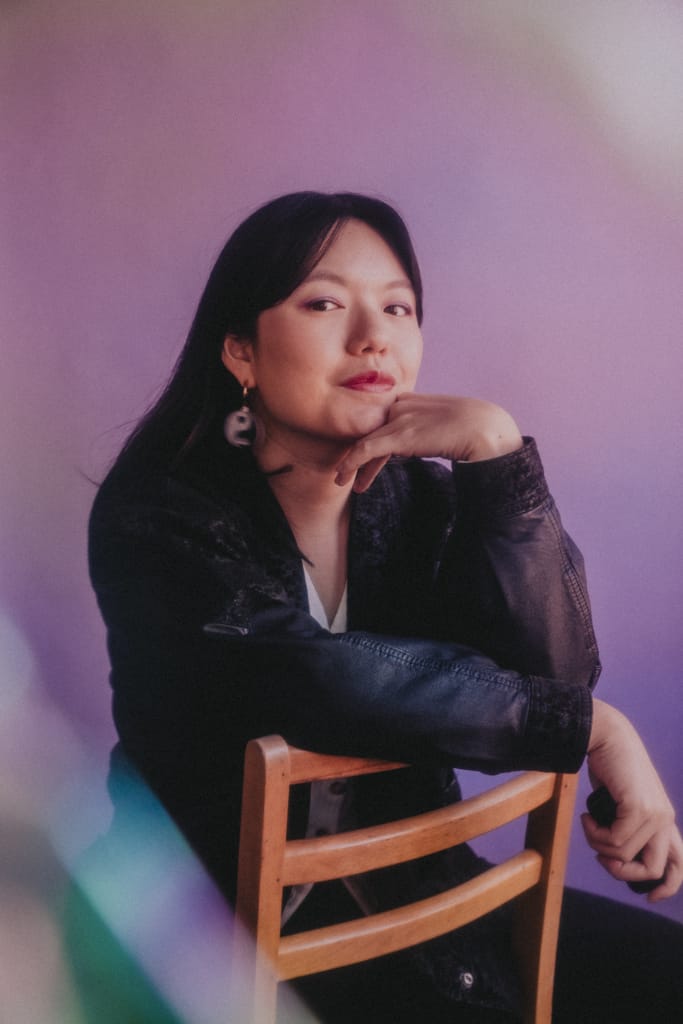
Filmmaker, photographer, and community artist and educator Mel Tiang on resourcefulness, doing it all, and embracing the winding road.
Mel Taing (BFA ’16) returns to her MassArt roots by making a film about a new library in Boston’s Chinatown, which hasn’t had a permanent branch since 1956.

